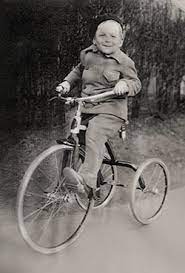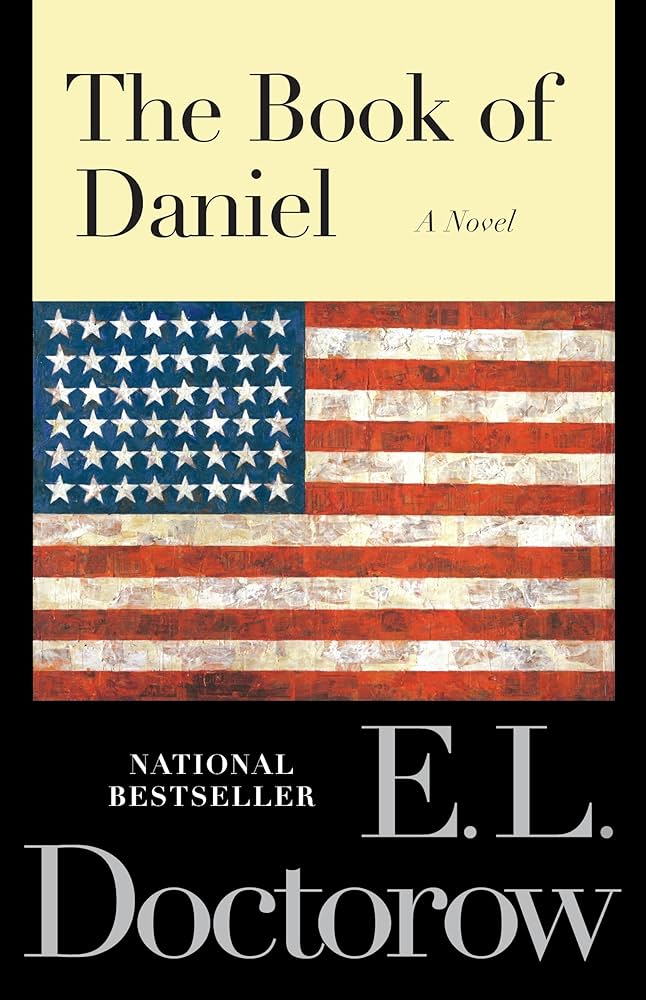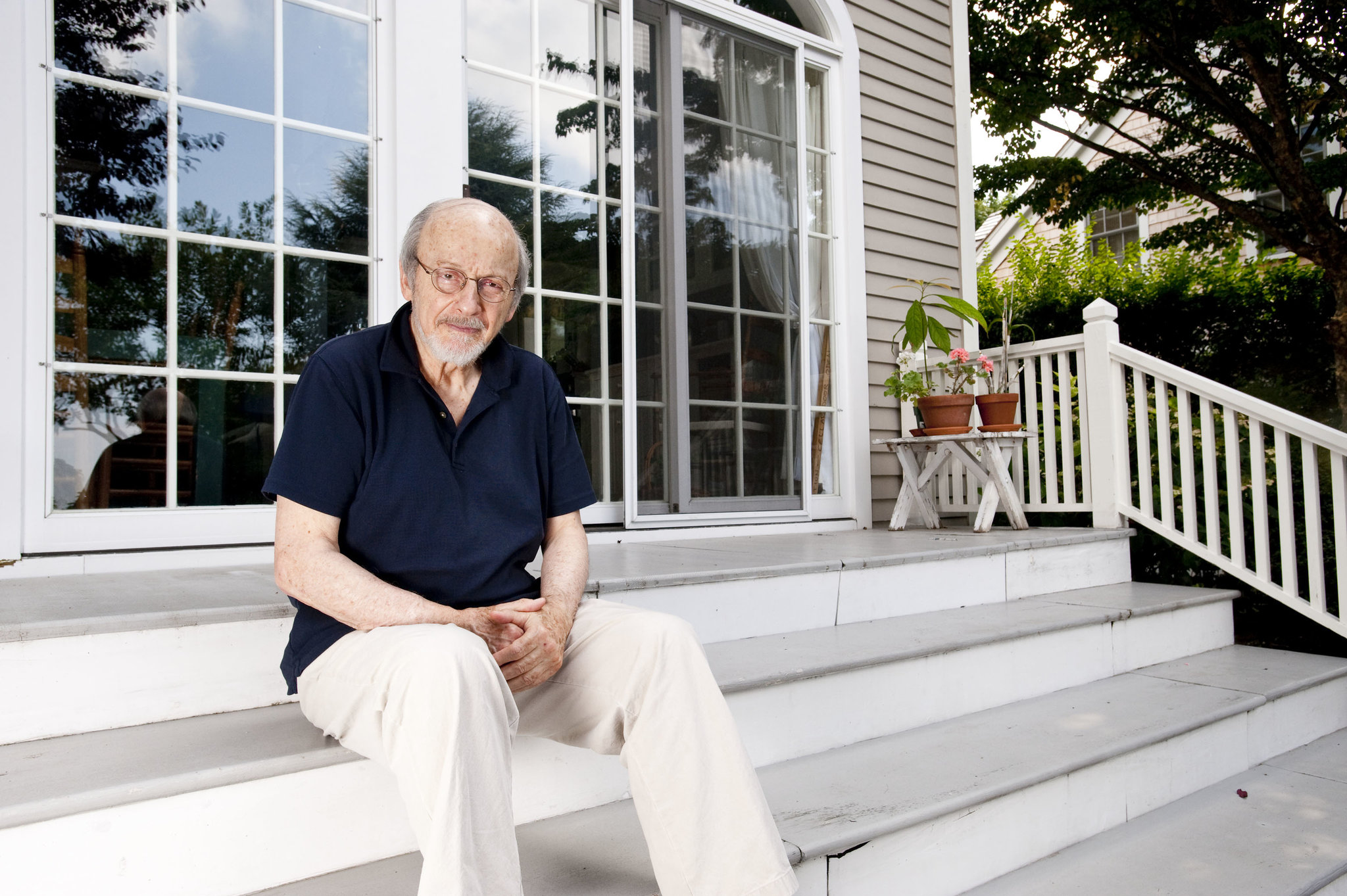E.L. Doctorow
“Where mythology and history converge, that’s where I start my novels” – E. L. Doctorow
Edgar Lawrence Doctorow was born in the Bronx on January 6, 1931. His grandparents were Jewish immigrants from Russia and his father owned a musical instrument store while his mother was a pianist. Though they were not rich, his parents prioritized cultural experiences, and he grew up attending concerts and the theater. His parents were also avid readers and Doctorow has said that he was named after Edgar Allen Poe, his father’s favorite writer. However, Doctorow despises his namesake’s poetry.

E.L. Doctorow as a child
Doctorow began experimenting with writing in high school, including his later penchant to freely rewrite the past. For a journalism assignment, he submitted a compelling interview with a doorman at Carnegie Hall. Impressed, the school tried to get a photograph of the doorman to publish the piece, and after several excuses, Doctorow was forced to admit that the entire person was fabricated.
He attended Kenyon College in Ohio. Afterwards he began a graduate program at Columbia, where he met Helen Setzer, the woman who would later become his wife for over sixty years. They married in 1954 and had three children together. Doctorow never completed his graduate program as he was drafted and sent abroad before he could complete his dissertation. He spent two years in Germany as a corporal in the signal corps with the United States Army.
After he left the military and returned to the United States, Doctorow took series of odd jobs to support his family. However, he always wanted to write. He found his way into publishing while trying to establish his literary career. His first novel, Welcome to Hard Times, was a western parody mocking the terrible screenplays he had read as a script reader. He followed that with a science fiction book, Big as Life in 1960. The novel was poorly received, and he later pulled it from circulation and refused to re-release it. After these first two books, his novels then shifted to historical fiction that he often laced with a political bent. The Book of Daniel released in 1969 was a reimagining of the Julius and Ethel Rosenberg case from the point of view of their son Daniel. The work was called “the best American political novel in a generation” by the Saturday Review.

The Book of Daniel
His next novel would be his most famous work. Ragtime was published in 1975 and was an overnight success. In an interview with New York Magazine, Doctorow noted that he began Ragtime with his house in New Rochelle. He realized it was the first house built on that hill, so he started to imagine what it looked like at the time. Considering the flurry of historical characters and the three intertwining main stories, The Chicago Tribune called it a “pointillist painting of a novel.” However, the novel also caused some scandal as he played fast and loose with the historical characters (for instance, Emma Goldman certainly did not give Evelyn Nesbit a body rub as was written in the novel). Any criticism aside, the novel has been named one of the 100 best novels of the 20th Century by the Modern Library editorial board. Ragtime was adapted to film and featured James Cagney in his final role. It also became a Tony Award-winning musical.
After the success of Ragtime, Doctorow felt overwhelmed with the fame and he moved his family to Utah to escape. As he later said about fame in the Los Angeles Review of Books, “America never gives you anything without you having to pay for it.”
Doctorow’s literary career spanned five decades. In total, he wrote 12 novels, the final one published in 2014. He also wrote a play, Drinks before Dinner that premiered at the Public Theater in 1978. He was often called a political novelist, and although his novels were liberally subversive and often contained left-wing sentiments, he detested that label. His novels were historical fiction, and he stressed fiction, as he freely and openly invented. As he noted, one of his reasons was to undermine authoritative historical perspective. He understood how history changes depending on who is telling the story. His main literary concepts were to situation fictional characters alongside identifiable historical figures and to use unconventional narrative forms. He would use unreliable narrators, stream-of-consciousness narration, multiple narrators of the same event and omniscient narrators, rarely sticking to one style in a novel. For instance, in Ragtime there is no quoted dialogue.
His writing awards included the PEN/Faulkner Award for Fiction twice, the National Book Critics Circle Award twice, the National Book Award (for World’s Fair) and he was twice a finalist for the Pulitzer Prize (for Billy Bathgate and The March). In 1998 he received the National Humanities Medial from the National Endowment for the Humanities. Doctorow was inducted into the New York Writers Hall of Fame in 2012, and in 2013 received the Medal for Distinguished Contribution to American Letters from the National Book Foundation, and the Library of Congress Prize for American Fiction in 2014. New York University’s library director called Doctorow “one of the most important American novelists of the 20th Century.”

E.L. Doctorow
E.L. Doctorow died July 21, 2015 in his beloved New York City. He was 84. One of his deepest legacies was his reinvention of the historical fiction genre that could be summed up with how he answered a question posed by Time Magazine about the difference between a historian and a novelist, “The historian will tell you what happened. The novelist will tell you what it felt like.”